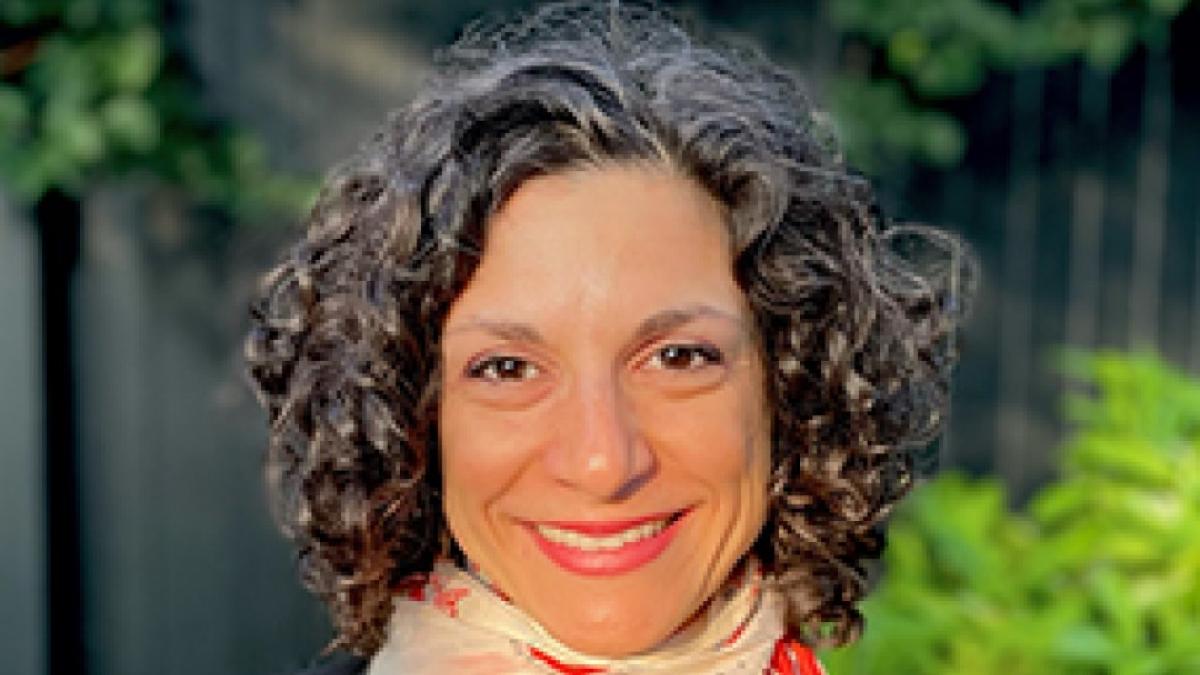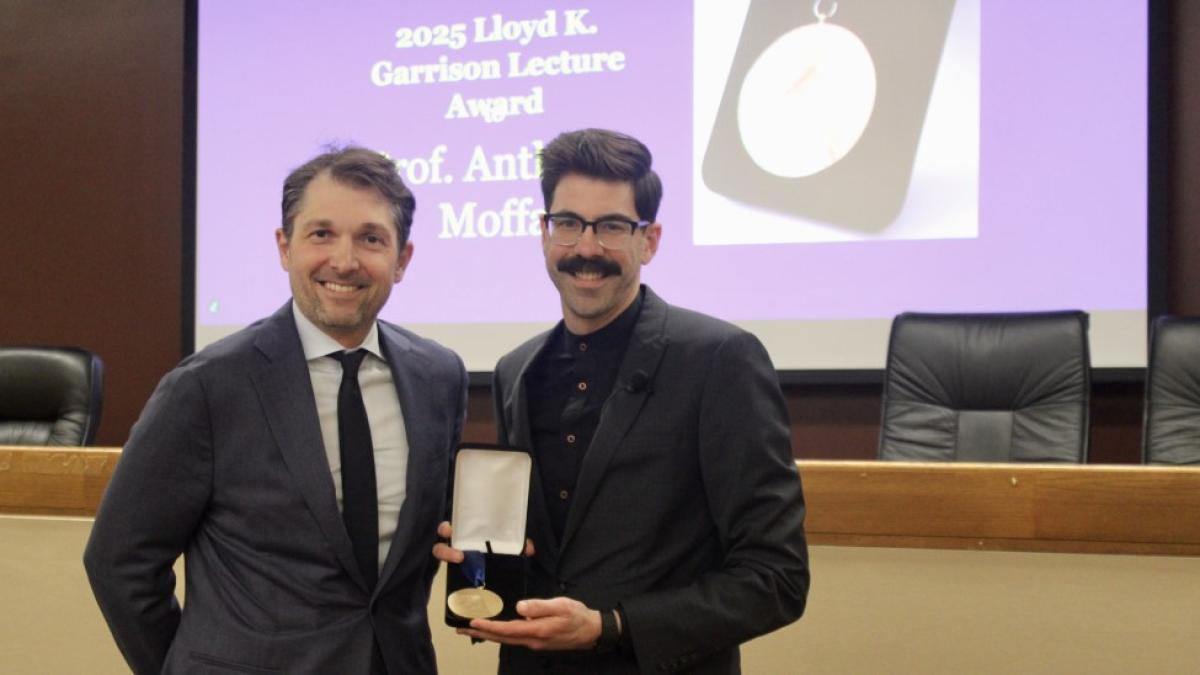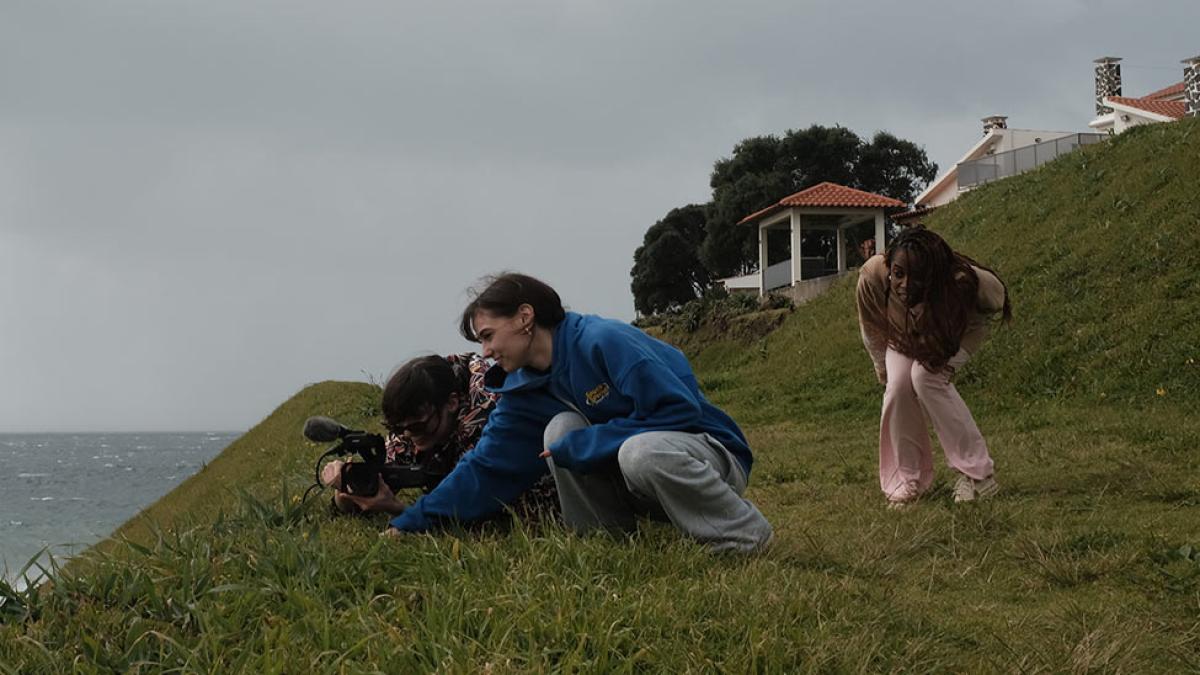The Elisabeth Haub School of Law at Pace University is pleased to announce that Kate Skolnick, an accomplished public defender and respected criminal law scholar, will join the faculty as an Assistant Professor of Law beginning in Fall 2025. Professor Skolnick will teach courses in criminal law and criminal procedure, along with an advanced criminal law seminar.
Press Release: Pace University Kicks off National Endowment for the Humanities (NEH) Initiative

Ground Beneath Our Feet launches with a series of experiential learning programs that connect students with history and current events
As part of National Arts and Humanities Month, Pace University is highlighting its commitment to experiential learning in the humanities. The university recently kicked-off The Ground Beneath Our Feet (GBOF), a program funded by the National Endowment for the Humanities (NEH), which provides students with hands-on experience while connecting them to history and current events.
The GBOF initiative features a series of programs, courses, and a specialized digital mapping platform that taps into New York City’s rich history and culture and recognizes the location of Pace’s downtown campus on unceded Lenape land near the African Burial Ground–at the convergence of Chinatown, Civic Center, Financial District, and the Seaport.
Students engage with a diverse range of topics, from New York City’s 19th-century Spanish-language press to the impacts of Super Storm Sandy to an in-depth look at mutual aid networks during crises. These courses allow students to engage with local communities to address real needs in New York City, using digital mapping technology to connect historical events with modern-day challenges and possible solutions.
“Pace is proud of our strong commitment to the humanities, civic engagement, and experiential learning,” said Pace University President Marvin Krislov. “We make the humanities relevant and practical by connecting students with real-world issues.”
The GBOF efforts, led by Maria Iacullo-Bird, Ph.D., assistant provost for research and clinical professor of history; Kelley Kreitz, Ph.D., director of experiential learning and associate professor of English; and Sid Ray, Ph.D., co-chair and professor of English launched with a kickoff event in September. Moderated by Tresmaine R. Grimes, Ph.D., dean of the Dyson College of Arts and Sciences and the School of Education, the event featured presentations by award-winning poet Felicity Flores-Drew ’24 and Kailey Liddell ’23, a Charles S. Dyson Award-winning playwright. Additionally, faculty and community partners participated in a panel discussion highlighting the historical significance of Pace’s Lower Manhattan campus.
GBOF supports courses dedicated to advancing experiential learning in humanities in partnership with a Lower Manhattan Humanities Consortium of cultural and service organizations. Partners include: Billion Oyster Project; Bowery Residents’ Committee; New York City Department of Records and Information Services (DORIS), Municipal Archives Division; South Street Seaport Museum; and Trinity Church Archives.
“Our Chinatowns in the Americas course fosters experiential learning through mutual aid, where students collaborate with community partners in Chinatown to address real needs,” said Professor Stephanie Hsu. “Through this collaboration, students also explore critical issues such as real estate development, eminent domain, the city’s ‘mega-jail’ plans, and food insecurity.”
A second NEH grant designed to support experiential humanities courses like those in the GBOF initiative will establish a new state-of-the-art Makerspace and Humanities Lab, funded by NEH, which will allow students to engage in creative practices such as bookmaking and fabrication, with access to rare small-press publications and DIY works from New York City through the Pace Zine Library collection.
“We are a leader nationally in building what we call experiential humanities–where we empower students to learn by doing,” said Kreitz. “This is a shift away from the historical model of universities of a one-way flow of information. Ultimately, we are preparing students to create the future in which they want to participate.”
GBOF is just one of many experiential learning programs at Pace that support its liberal arts core curriculum and degree programs throughout its seven schools. Over the next few years, Pace is committed to expanding this classroom-based research and community engagement model, allowing students to immerse themselves with historic locations in Pace’s backyard.
A strong liberal arts foundation is a competitive advantage for all Pace students, as it is integrated across all schools and departments. In fact, Pace is set to launch a new Humanities, Art, and Computing minor, housed both in Seidenberg School of Computer Science and Information Systems and Dyson College of Arts and Sciences. The program will combine digital humanities with equity-centered design thinking, using advanced technology and public engagement to investigate and analyze questions in the humanities.
About Pace University
Since 1906, Pace University has been transforming the lives of its diverse students—academically, professionally, and socioeconomically. With campuses in New York City and Westchester County, Pace offers bachelor, master, and doctoral degree programs to 13,600 students in its College of Health Professions, Dyson College of Arts and Sciences, Elisabeth Haub School of Law, Lubin School of Business, Sands College of Performing Arts, School of Education, and Seidenberg School of Computer Science and Information Systems.


